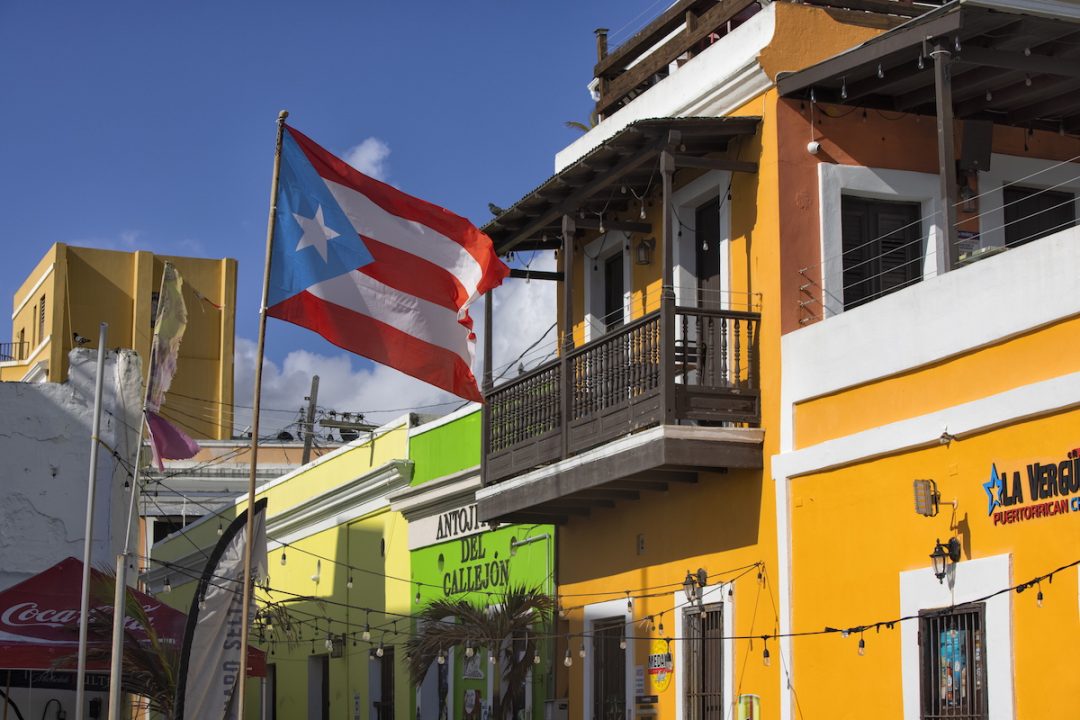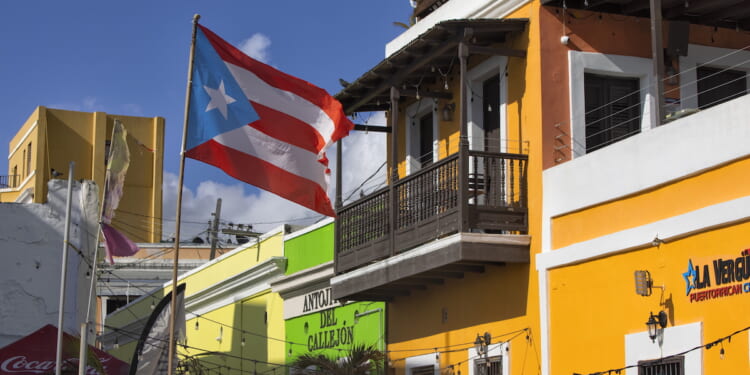
“Puerto Rico doesn’t have to be ‘American’ to be a friend of America. Let it be what it already is — a nation.”
So editorializes Javier A. Hernández, a Puerto Rican author, linguist, educator, and former federal official. And Hernández is one more thing, too: a pro-Puerto Rico sovereignty advocate. So his passions are clear. Yet so is his point:
Should Puerto Rico ever become a state, it would never, ever assimilate into the United States.
Nor would it be reasonable to expect it to.
Absorbing the island would be, in fact, a bit like accepting Spain as the 51st state and counting on assimilation. Far from this, however, the “Pearl of the Caribbean” would become what Quebec (French-speaking province) is to Canada — on steroids.
This is for good reason: Puerto Rico was a colony of Spain’s for more than 400 years. The island “is an older nation than the United States,” Hernández points out. It has “a history spanning over 500 years of Hispanic civilization.” Its character isn’t changing, either.
Neither Fish Nor Fowl
As many know, Puerto Rico has a status shared by only four other lands. It’s an unincorporated U.S. territory whose residents are nonetheless U.S. citizens. They can be drafted into the American military, but cannot vote in presidential elections. They also have no voting members in Congress.
This unusual situation arose because Puerto Rico was a spoil of war. It was ceded to the United States in 1898 after the Spanish-American War. Since then, it has been in limbo, neither a state nor its own country. The island isn’t in largess limbo, however. Why, its residents receive more than $8,500 in per capita U.S. handouts — more than the American average.
And what is this status’ point at this juncture? As Hernández puts it, “Puerto Rico is not a state waiting for admission.” It “is a nation that has withstood foreign rule while maintaining its identity.” He then makes his case, pointing out:
In Puerto Rico, the Spanish language, Catholic traditions, music, and Caribbean rhythms are living daily realities, not relics.
San Juan’s streets are “Spanish in tone and identity, Caribbean in warmth, Latin American in perspective,” Hernández writes — distinct from Miami or D.C.
Americanization (1898–present) has already failed. The U.S. invasion was followed by English-only schools, forced citizenship (1917), and economic control — all rejected. Puerto Ricans kept Spanish; their flag; and culture via family, church, and the arts.
Even statehood advocates identify as “Puerto Ricans who value U.S. citizenship,” not “Americans.” This cultural divide is acknowledged on all sides.
Then there’s a certain contradiction. Under U.S. law, Puerto Rican-descent U.S. “citizens” are not, for estate-tax purposes, “Americans” after death. (No Americanization without respiration?) About this Hernández asks:
If the federal government does not consider Puerto Ricans fully American when they die, why should Puerto Ricans pretend to be American while they live?
Can You Say “Balkanization”?
In his very objective article, Hernández points out that Puerto Rican statehood would be culturally disastrous for the United States. As he argues:
For Americans who value a common language, culture, and civic identity, making Puerto Rico a state prompts significant questions. Is it possible for the American Republic to stay united when one of its states is a proud Latin American nation that speaks a different language, honors a different history, abhors assimilation, rejects adopting English, and displays a different national flag? Most would say no.
Puerto Rico is not a mere “Midwestern frontier” in the 1800s, awaiting development. It is a unique and historic Caribbean nation, with its own national anthem, Olympic team, and cultural identity.
If admitted, Puerto Rico would be the only state where most people speak Spanish rather than English, and where identity is rooted not in the Mayflower or the Founding Fathers, but in the Spanish Empire and Caribbean heritage. For a United States already divided and polarized by cultural differences, this isn’t just impractical; it’s unwise.
And that’s an understatement. Patriots will rightly complain about “pressing one for English,” government documents printed in other languages, and our general cultural dissolution. But these arguments would ring hollow with Puerto Rican statehood. For it would occur without the requirement, explicit or implied, that the island assimilate; it would be a non-starter.
In other words, patriots will warn, speaking metaphorically, that our immigration regime and multiculturalism have created “nations within our nation.” With Puerto Rican statehood, however, this would literally be true. We’d have no business complaining, either, because we’d have chosen it, the Quebec-ification of the United States.
Political Implications
Hernández makes many good points in his article, which you can read in toto here. And as he warns, “When countries annex populations that refuse to assimilate, conflict becomes likely.” He addresses the political implications, too, writing:
For Americans who value national sovereignty, limited government, and cultural continuity, Puerto Rico’s admission would create irreconcilable contradictions.
That is, Puerto Ricans, as the Quebecois do, would cling to their culture all the more, opposing perceived “Anglo domination.” One Puerto Rican family in a city of 10,000 English-speaking families will eventually assimilate. One Puerto Rican “state” in a country of 50 English-speaking states never will.
This new state would be a welfare state, too. Puerto Ricans choose leaders who lobby for big government and expanded handouts, Hernández explains. As he elaborates:
“Statehood is for the poor,” is the slogan of Puerto Rico’s pro-statehood party, which campaigns on promises of more federal benefits, not on assimilation or productivity. The goal isn’t to become American but to secure more handouts and ongoing access to federal funds. That is not statehood; it is an addiction to subsidized federal dependency.
Note here that Puerto Ricans in the United States, while moving somewhat toward President Donald Trump, still broke for Kamala Harris in 2024 by approximately 12 points. Even more significantly perhaps, a non-binding straw poll in Puerto Rico put Harris on top 75-25. The political upshot?
Puerto Rican statehood means two more Democratic senators guaranteed, and likely five more Democratic congressmen — AOCs without the bartender credentials.
A Republic, Not an Empire
Remember here that the United States is meant to a republic and a nation — a land of people with common bonds — not an empire. For a prerequisite for successful empire-building is autocracy or, at least, unequal representation. Rome’s Emperor Trajan could conquer parts of today’s Jordan, Sinai, Saudi Arabia, Armenia, and Romania, and other lands, without worry. His new subjects couldn’t join in helping his existing opponents vote him from office, after all. But for a land with universal suffrage to absorb a de facto foreign nation is suicidal.
This said, Puerto Rico has held seven non-binding status referenda. The independence option has never received more than 5.5 percent of the vote, either (such is welfare dependency’s power). And with the United States having strategic, economic, and political reasons to maintain the status quo, the only state the island will be in the near future is the State of Limbo.











